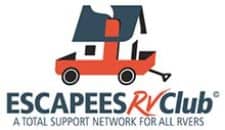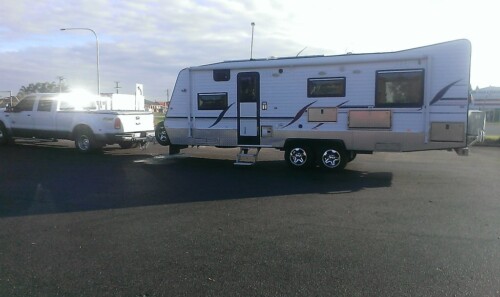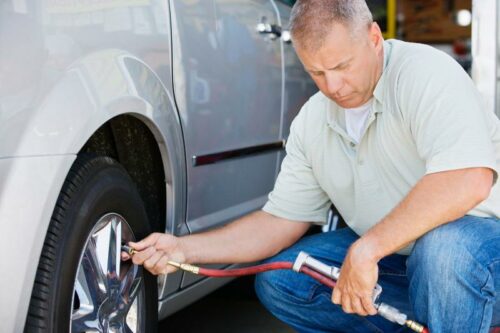So, the tent is all set up. And you only let slip four curse words while doing it!
… The only problem is a severe thunderstorm is on the horizon. You doubt whether your tarp and tent will keep you dry. “Should have bought that RV,” you grumble. It would have kept you safe, warm and happy.
But the storm passes, your high-quality rainfly has done the job. Water is draining away, leaving you with a rainbow and slight glimpses of sun piercing through the clouds. Your camping journey has begun.
How do you choose between tent camping and RVing? Many campers choose a van or RV because of the weather protection, but that’s only one of the arguments. While both have their merits, each camper will need to choose the one they find the most comfortable.
To help you with this decision, let’s look at van camping vs. tent camping.
TENT VS RV CAMPING: A SUMMARY
| Van Camping | Tent Camping |
| Offers More Security | Way Cheaper |
| More Access To Amenities | Offers More Of A Challenge |
| Virtually Weatherproof | Makes Backpacking Possible |
| Offers More Versatility | You Can Reach Almost Every Location |
| More Comfortable Sleeping | Brings You Closer To The Outdoors |
| Easier For Beginners | Teaches You Basic Survival Skills |
WHICH COSTS MORE?

Van Camping
Unfortunately, RV camping tends to be far more expensive than tent camping, especially the initial purchases. RVs can cost you anywhere from $10,000 to $300,000 if you want the best and newest models on the market today.
Unfortunately, the costs for van campers don’t stop here. Once you have made your purchase, you will be looking at fuel expenses, insurance, and costs for the stand you want to use. Once you have made the purchase and insurance are sorted, the fuel expenses will be your biggest concern. Depending on your model, this is what you could expect:
- Class A RV: 6 – 11 MPG
- Class B RV: 18 – 25 MPG
- Class C RV: 12 – 18 MPG
You can use this breakdown for trailers and fifth wheels as well. The smaller and lighter the unit, the less fuel it will use. Keep in mind that the weight you put in the RV or trailer will also affect fuel economy.
Renting is another option. However, renting an RV could cost you anywhere from $75 to $300 per day + tax. You might also need to spend a little extra on insurance, charged daily.
Tent Camping
You can find some great-but-affordable double-wall camping tents from Alps, Kelty, and Coleman. These will range in prices from $100 to $1,000 depending on the tent size and quality (3-season or 4-season). Traditionally, the costs of tent sites are also slightly cheaper, averaging about $20 per day for an electric-only site.
While an RV has almost everything included in the deal, your tent does not. You might need a mattress or foldable camping bed while investing in a sleeping bag to keep you warm. Portable coolers are needed for storing your food and many campers prefer portable cooking supplies like a camping stove. Here is the list of things you need to buy:
- Tent: $100 – $1000
- Sleeping Bag: $50 – $500
- Cooler: $100
- Camping bed/ Stretchers: $300
These are only some of the bare essentials, and you will find that as you begin enjoying camping, you will want to upgrade and add more gear to your kit.
WHICH IS MORE COMFORTABLE?

Van Camping
The big upside to choosing an RV is the comfort! You could have access to hot water, entertainment systems, and a comfortable bed, which feels like you never left home. Having access to fridges also makes it useful for storing your food and keeping it fresh. The RV could offer you the following comfort benefits:
- A hot shower
- A traditional bed
- Storage for food
- Access to possible entertainment systems
- Solid overhead protection from the elements
You will notice that every RV has a few different extras. Some of the high-end models will give you access to underfloor heating and adjustable air conditioning.
Tent Camping
Comfort becomes slightly iffy when thinking about tent camping. The downsides are that you won’t have a secure overhead structure for bad conditions. You might have to rely on the amenities provided by the campground, like the bathhouse. And no sleeping pad is so good it can completely eliminate the bumpiness of sticks and rocks!
Setting up the tent can be another hassle. No one enjoys fighting with a tent in the middle of monsoon conditions (ask me how I know).
WHICH SURVIVES THE WEATHER?

Van Camping
Camping with an RV makes dealing with weather conditions much easier. You might run into monsoon weather conditions, with constant rain belting down on your RV. However, the RV is elevated, which prevents flooding. The structure should hold up in all but the toughest conditions. While you might be left without electricity for a while, you will not have to deal with wet clothing or gear.
Tent Camping
On the other hand, it becomes more complicated for those of us that prefer tent camping. Weather is unpredictable. A buildup of water could flood your tent, and some of the best rain flies might not hold up with what nature can throw your way. A 2010 flash flood in Arkansas killed around 16 campers, while another 60 need rescuing and medical attention.
WHICH HAS NICER AMENITIES?

Van Camping
You might want to consider van camping if you want to use the shower and have your own private toilet.
If you care about TV and entertainment while camping, a van is a better bet – although tablets have no enabled people to bring their movie screens with them anywhere!
Modern RVs have powerful batteries that could power your RV basics like your television and lights. You’ll need an inverter or generator to power your 120VAC appliances.
Tent Camping
Plumbing is a bigger issue when you use a tent. Many campers utilize the showers and toilets provided by the campgrounds. If these are not for you, you can invest in a secondary tent, allowing you to set up a portable shower or portable toilet.
While many stands offer you access to an electric supply, you don’t have the luxury of a battery if the site does not offer these extras. You will need to do the research and make sure your site provides you access to electricity.
WHICH IS BETTER FOR STEALTH CAMPING?

Van Camping
An RV opens up the world and gives you more freedom for choosing the ideal location. The great thing about owning an RV or camper van is that you can park virtually anywhere if you have to. Much like truckers sleep on their trucking journeys, you don’t have to book a motel if you are traveling.
Tent Camping
Imagine pitching your tent next to the side of the road if you want to sleep before continuing your trip. While this is possible, it can be very risky and dangerous. In some states, you could even be breaking the law. Wild camping is legal in certain parts of the United States and Canada unless indicated otherwise. However, you cannot simply pitch your tent on private property.
WHICH HAS MORE STORAGE SPACE?

Van Camping
With a van or RV, you have plenty of storage space available. Since most of the essentials are often built into the RV, you have additional space for some extras. If you want to go fishing at the camping location, no problem, you simply need to pack a few fishing rods.
With a van, you have far more packing space for your trip. The average acceptable weight for a conversion van roof is about 250 pounds.
Tent Camping
On the other hand, tent camping is different and you heavily rely on your vehicle for space. Even if you have the biggest truck, you will need to assign most of the space for your camping gear and essentials. This leaves you with only a little bit of room for these extras. Plus, everything in the corners of your tent seems to end up wet!
WHICH IS BETTER FOR COOKING FOOD?

Van Camping
Most modern RVs give you access to a propane or electric cooktop. These units are built into the RV, which means the initial price will cover them. Yes, you might need to refill the propane tank or find a suitable location with access to electricity, but cooking should be easy. Aside from having a freezer to keep your food from spoiling, you can simply cook inside your RV, regardless of weather conditions.
Tent Camping
Unfortunately, it is not recommended that campers cook inside their tents. Open fires are dangerous and could lead to your tent burning down. You will need to have access to a suitable location for making a fire or invest in a portable stove. Many of these stoves are powered by propane/butane, which makes them portable.
The big issue will arise in bad weather conditions. If you are dealing with extremely wet conditions, cooking outside will be futile. You might have to set up a secondary rainfly to allow for cooking in bad weather conditions.
WHICH HAS GREATER SAFETY AND SECURITY?

Van Camping
The benefit you have when using a van is that you have secure doors that can be locked. Should you choose to spend the day exploring the local area, all your personal belongings will remain safe inside the van. As mentioned with the weather conditions, everything inside the van will be out of harm’s way.
The current stats indicate that you have a 1 in 25,000 chance of being a victim of some crime when you camp with an RV.
Tent Camping
If you think of it, with your tent, you only have a small piece of paper-thin nylon separating you from the outside world. Aside from being at risk in bad weather conditions, your tent is not that hard to enter, even if you have a tent lock. Storing your possessions inside the tent does not guarantee they will remain safe while exploring.
Animal attacks could be another reason for concern. Even with the death rate being 0.657 per million from animal attacks in the US, there is still a small risk. Fortunately, most camping grounds have security systems like fences for additional protection.
BENEFITS OF VAN CAMPING FOR NEW CAMPERS
As a new camper, you might be wondering whether van camping is ideal for you to start your journey. My first time camping in an RV gave me direct insight into what benefits beginners could have if they opt for van camping:
- It is easier to acclimatize to your surroundings
- You have a stable safe haven
- You don’t need all the survival skills
- Weather conditions barely affect you
- You can have access to all your luxuries like TV, and even electricity
BENEFITS OF TENT CAMPING FOR BEGINNERS
You will need to have some grit between your teeth. Camping in the summer or spring is often recommended. However, here are some of the essential benefits you can expect from camping in a tent as a beginner:
- Learning basic survival skills
- Dealing with conditions as they arise
- Planning for the worst-case scenario
- Learning how to think out of the box
- It is cheaper if you don’t already own an RV

WHICH ONE SHOULD YOU CHOOSE?
Nowadays tent camping is still the most popular form of camping in the United States. Around 59% of all campers choose tent camping, with 24% of campers choosing van camping. If you have the funds or if you have access to someone with an RV, we would recommend that beginners try van camping to make it much easier and help you acclimatize.
Tent camping is reserved for those that are more daring and have a little bit of experience. Even if you do not have experience, you should have someone who does have some experience to guide you through the ins and outs of camping.
Van camping is the clear winner on paper, but you will need to bite the bullet and understand that it is far more expensive. Happy camping!
I have had the fortune of growing up in a camping-obsessed family. Since the age of 5, I have been fortunate enough to go camping on an annual basis. With my experience of great camping trips and a few I wish I never went on, my experience can help you avoid the same mishaps I had to endure!
-
Jean Whiteheadhttps://changingears.com/author/jean-whitehead/









